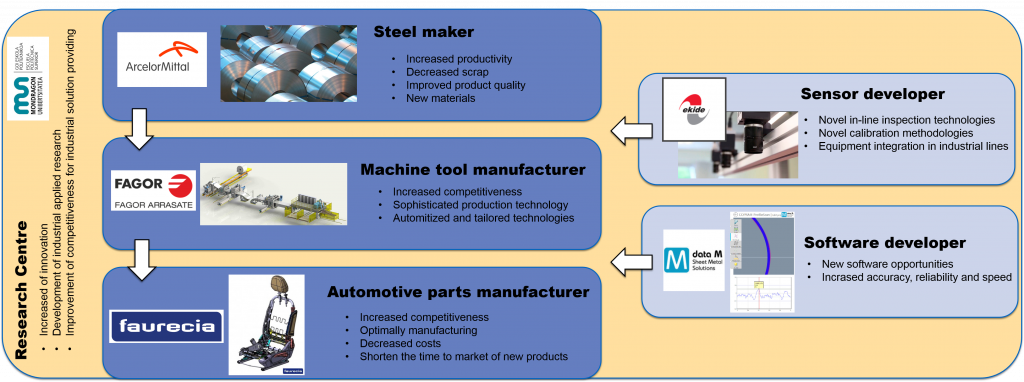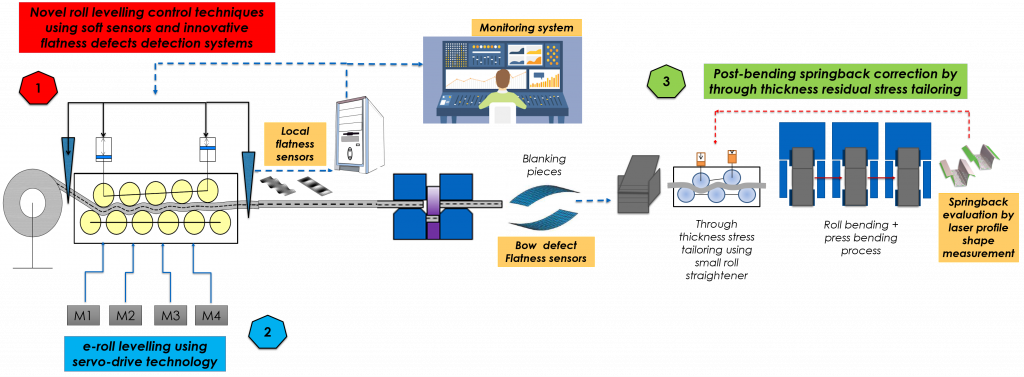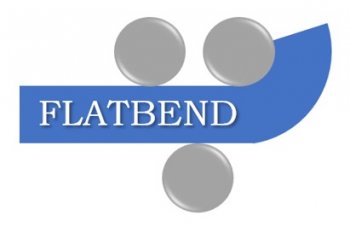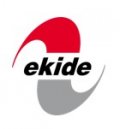The roll levelling process is responsible for providing suitable strips without shape defects and residual stresses coming from rolling processes. Normally, roll levellers ensure a flatness quality between 5-10 I-Units. However, for those materials to be cut, bent or welded in downstream processes, customers request greater flatness qualities to control the final springback, especially when using AHSS.
It is well known that material with a proper flatness tolerance can get a distortion during the subsequent processes. This distortion is caused by the inhomogeneous distribution of the stresses in the material and thus, an optimum material has to present a distributed and regular stress profile. However, the in-situ residual stress measurement of the processed material is industrially not viable with the existing techniques. Thus, the effect the residual stress variability has in the subsequent forming processes is difficult to study and still unknown.
FLATBEND industrial partners cover the whole steel process chain, starting with the steel producer and finishing with the automotive components stamper, a TIER1. Their large experience has allowed them to identify the current unsolved challenges for the processing of AHSS, which will be solved in the different Work Packages of this project.

The primary aim of the FLATBEND project is to optimize the existing DP980 processing lines for the production of defect free precuts by developing disruptive roll levelling techniques and to study the influence the precuts production process has in the press-bending process of automotive profiles. Additionally, and after understanding the relation between the incoming material condition and final springback of the components, the project will try to tailor the precuts properties by using an extra small dimension straightener before the final forming presses to create a robust and stable forming process that will reduce the manufacturing costs and the scrap amount.

KONIKER will support FAGOR ARRASATE during the FLATBEND project in the definition of the project specifications and giving support in the experimental tasks for the close loop control system development for roll levelling and the optimization of the multi-drive control system. Dissemination and communication actions will also be carried out by KONIKER. Project management activities will be also executed together with FAGOR.
FLATBEND (800730) is funded by European program, RFCS, Research Fund for Coal and Steel. The project is coordinated by FAGOR ARRASATE and will lasts three years.
Apart from KONIKER and FAGOR ARRASATE, other participants of the project are: DATA M (Germany), EKIDE (Spain), MGEP (Spain), ARCELORMITTAL (France) and FAURECIA (France).
Project information
Budget: 1,8 M€
Type of Project / Financing Program: Horizon 2020 RFCS
Dates for carrying out the program: 2018-2021
Project coordinator: FAGOR ARRASATE
Number of countries: 3
Number of partners: 7









